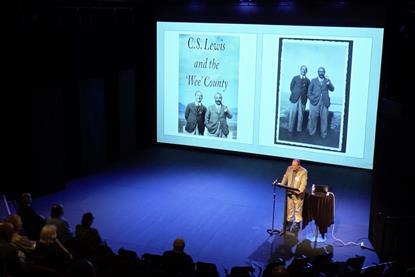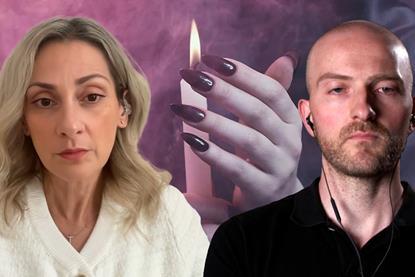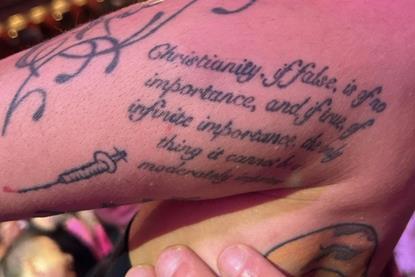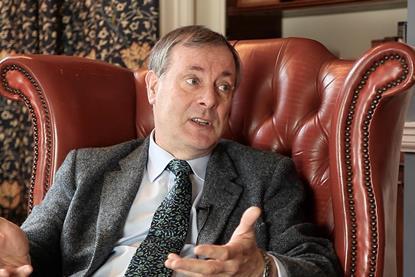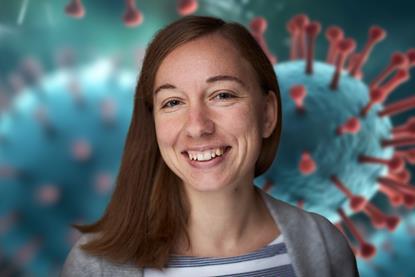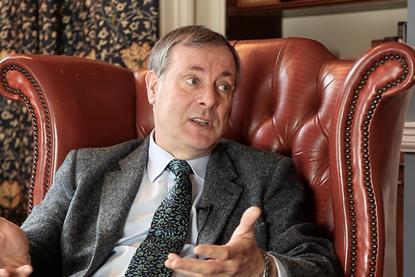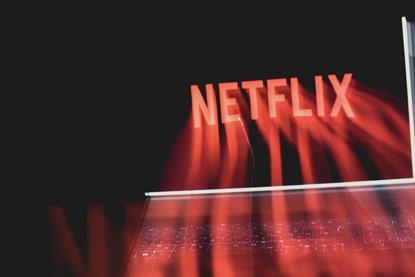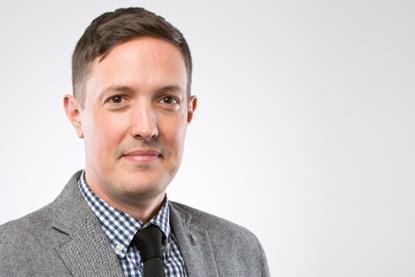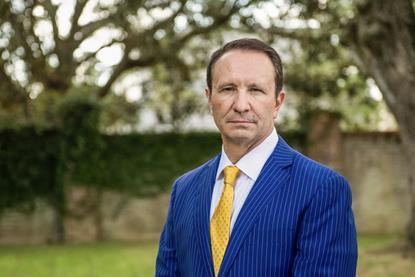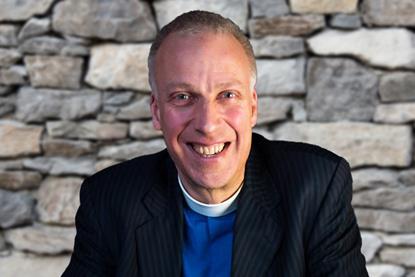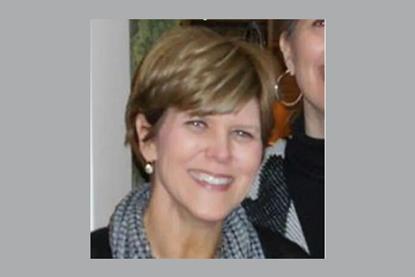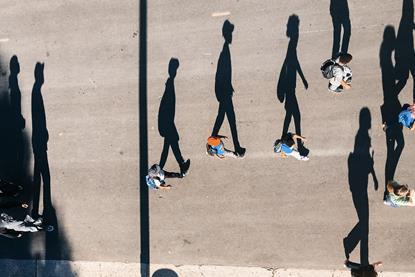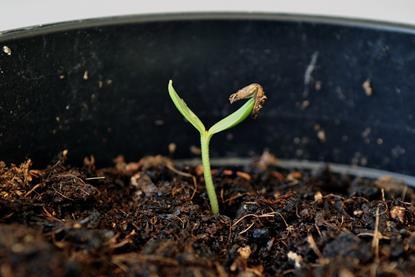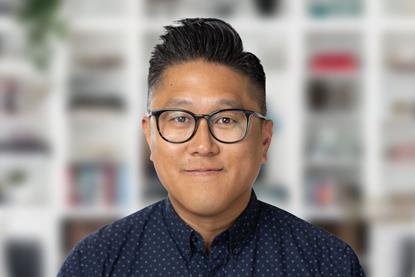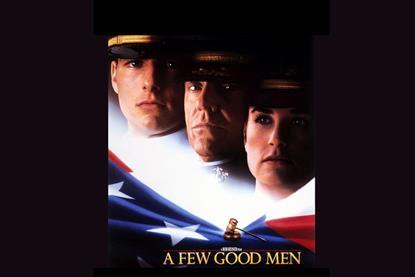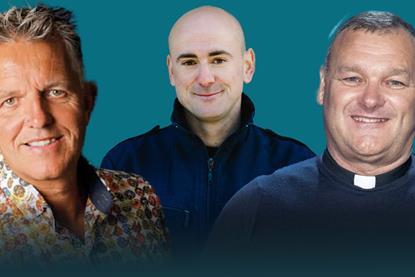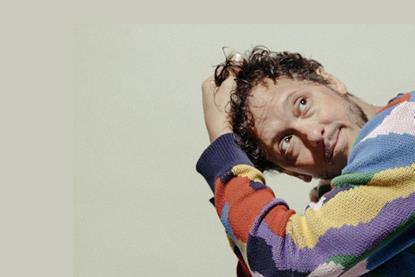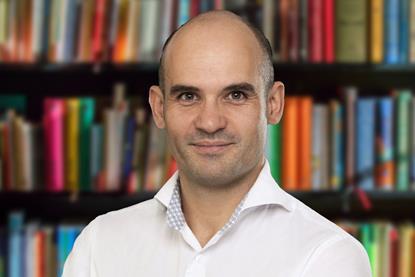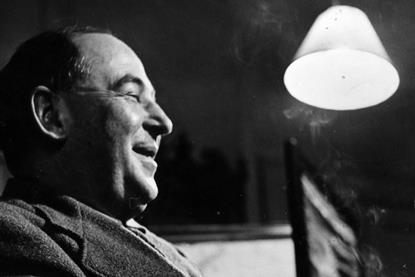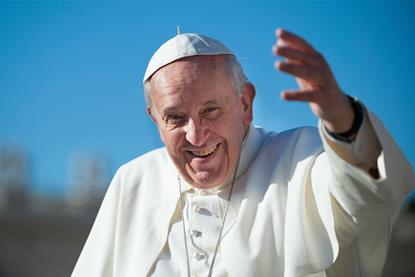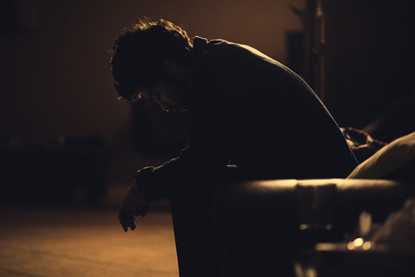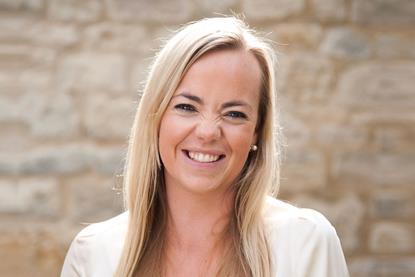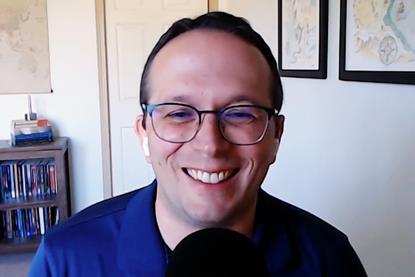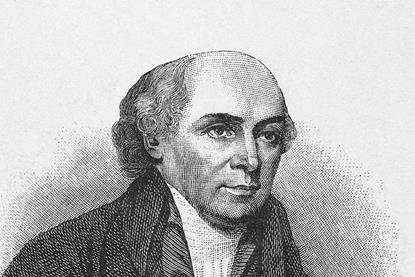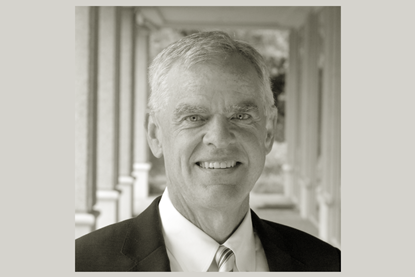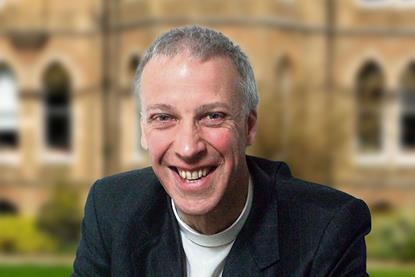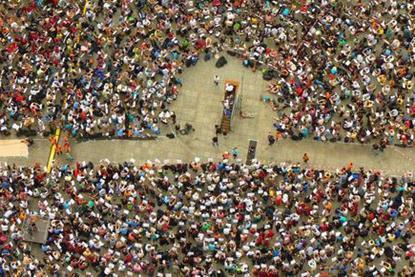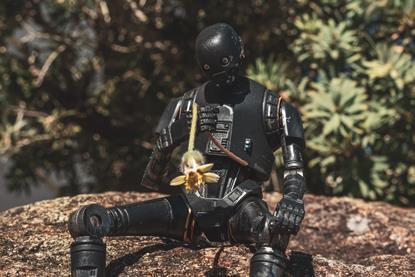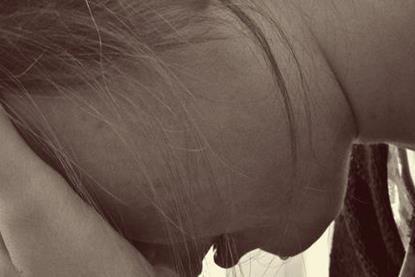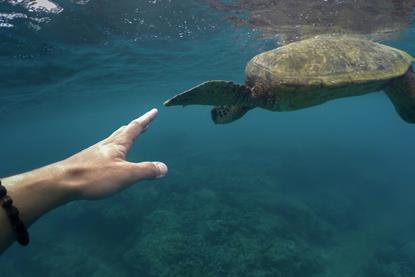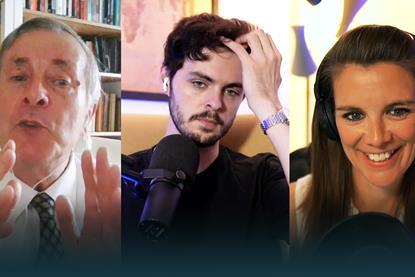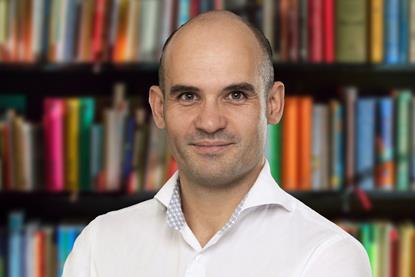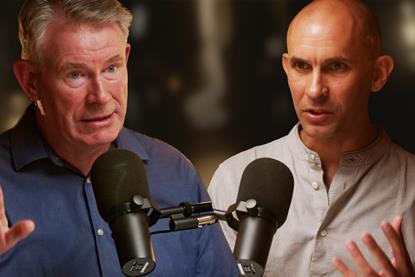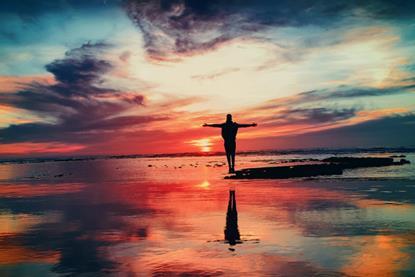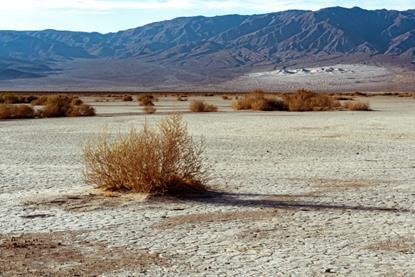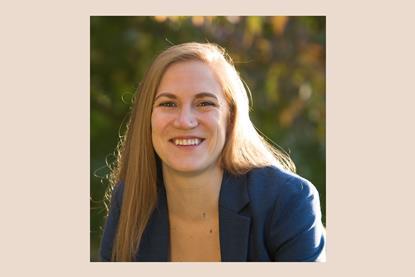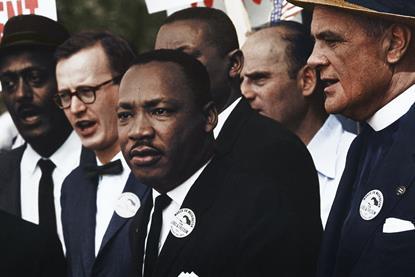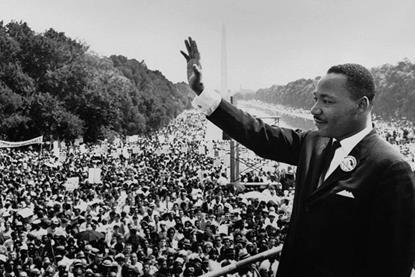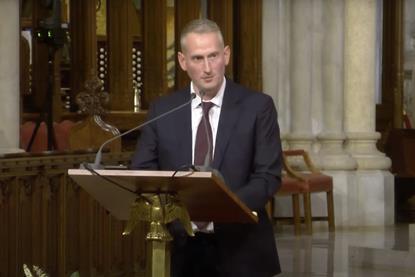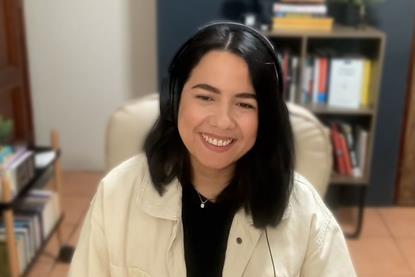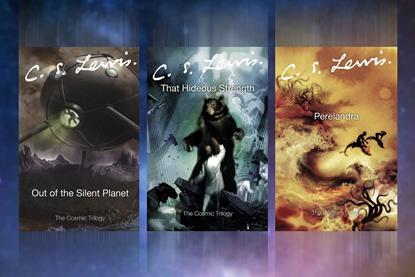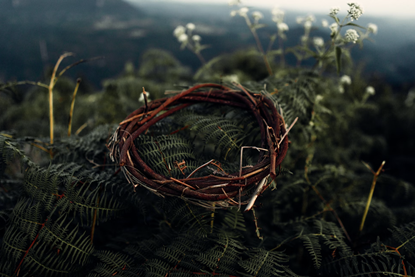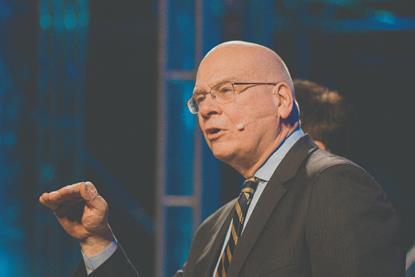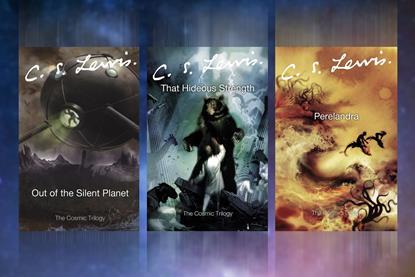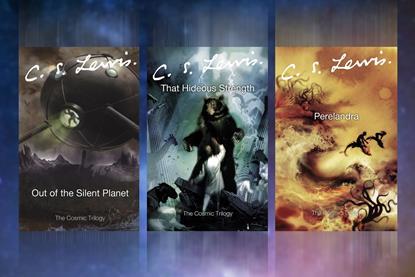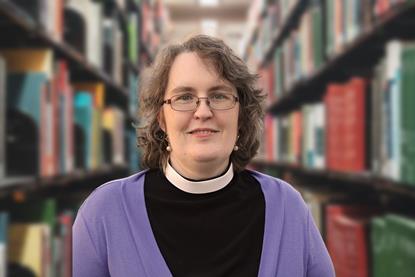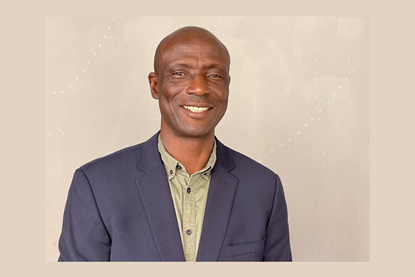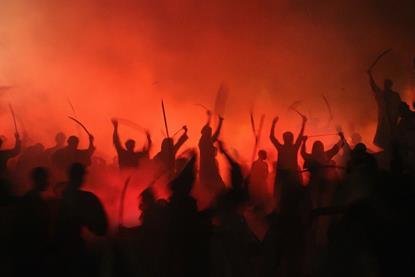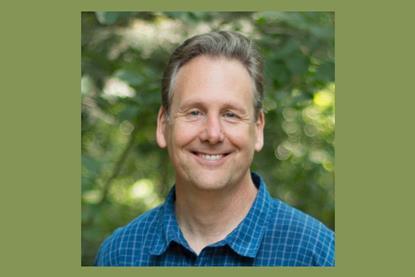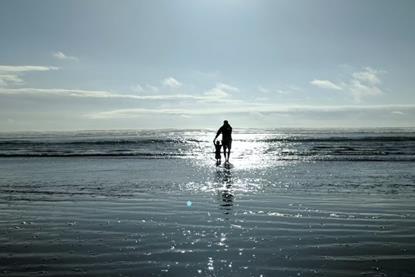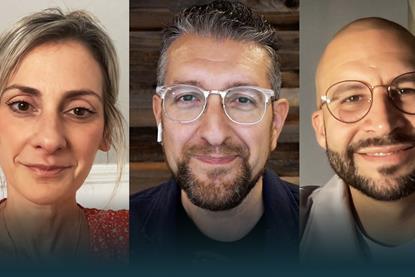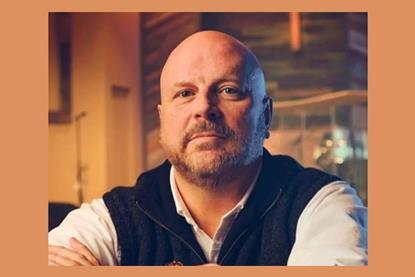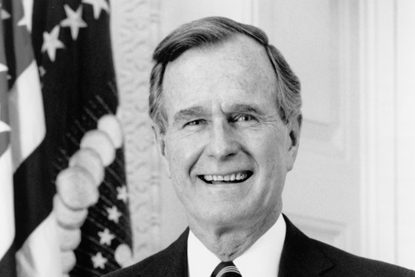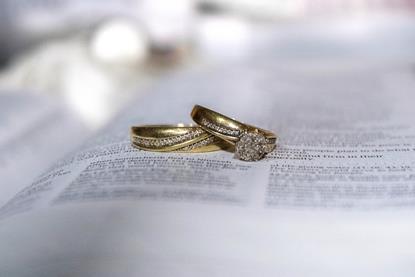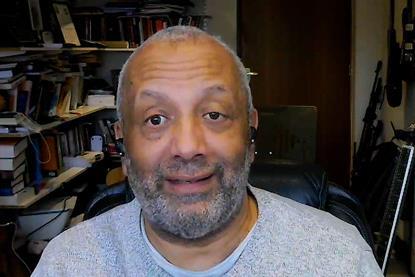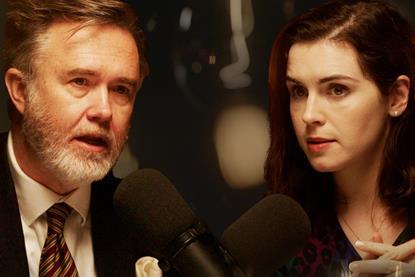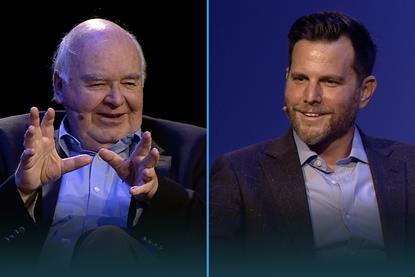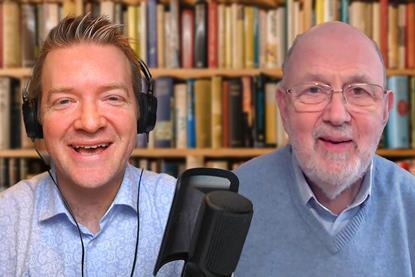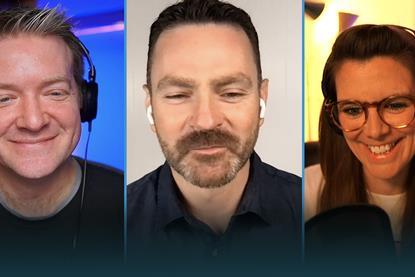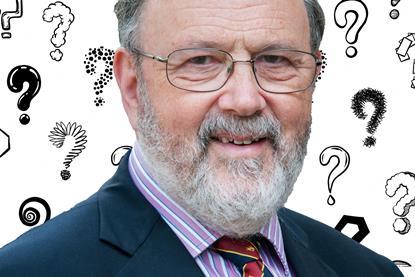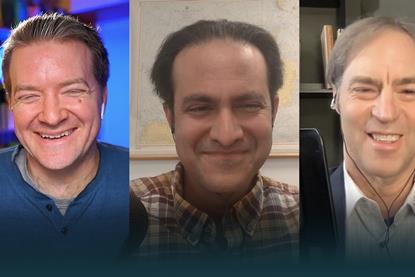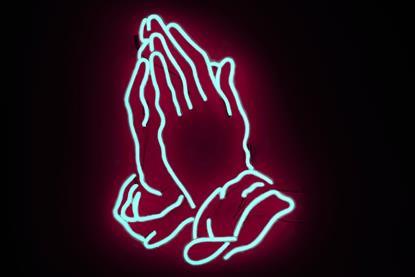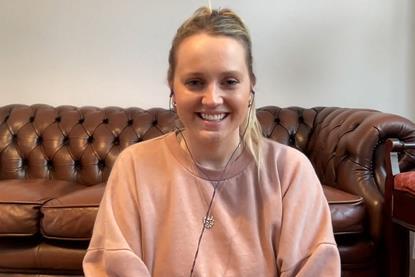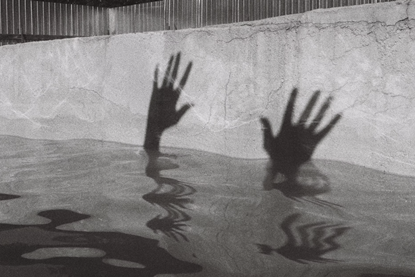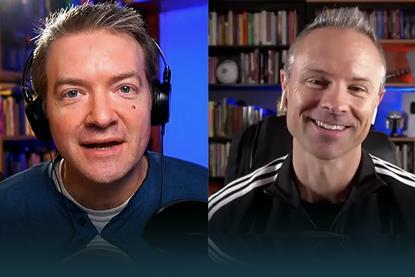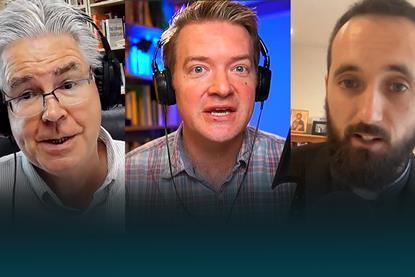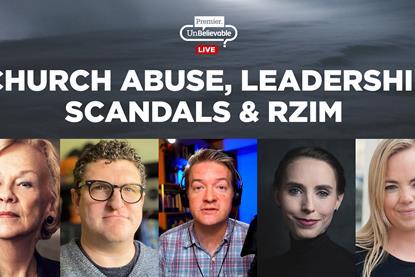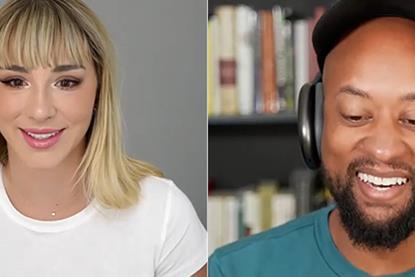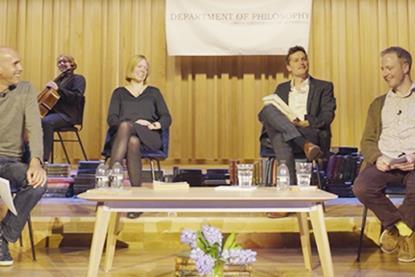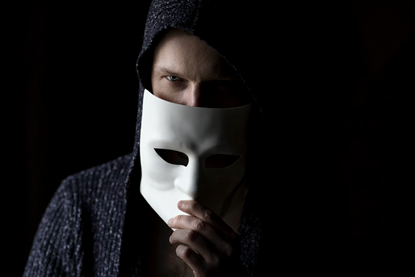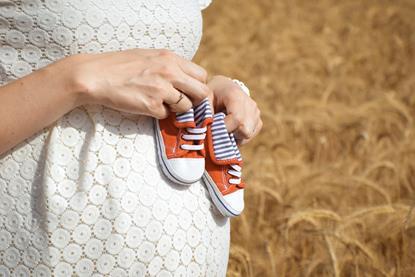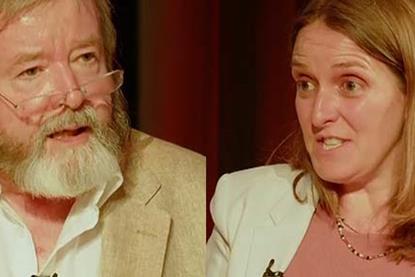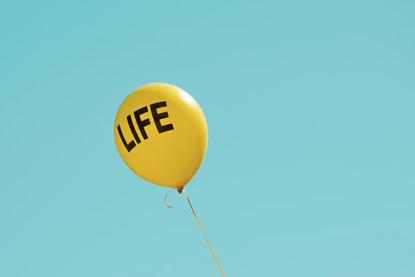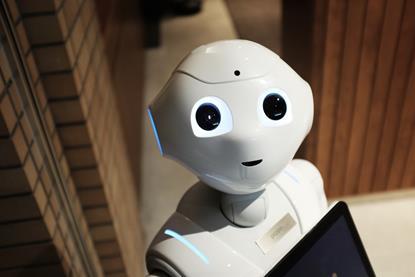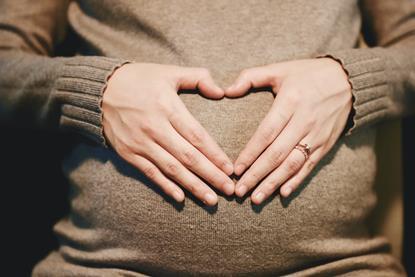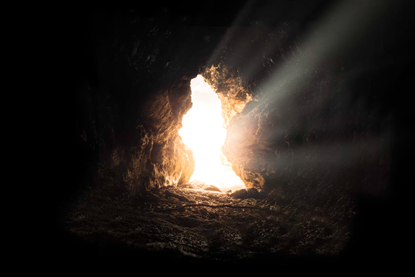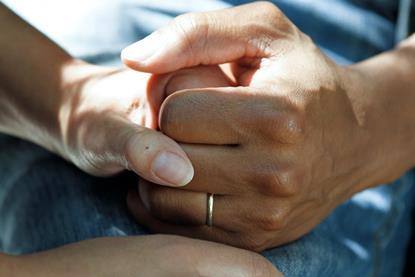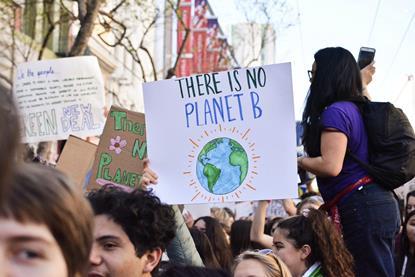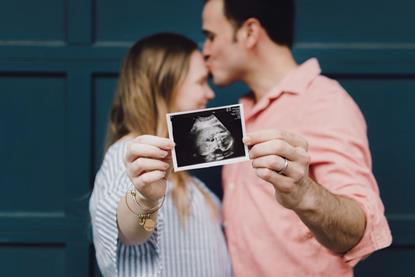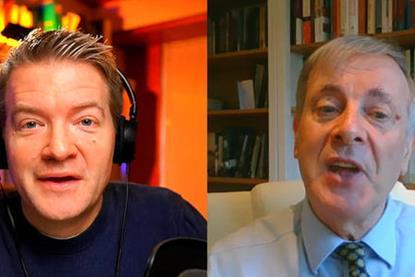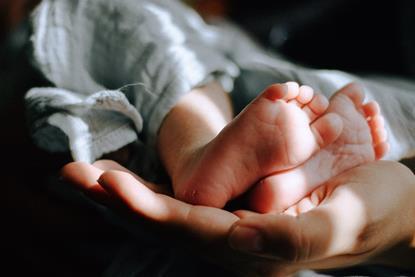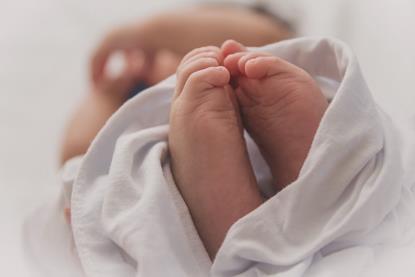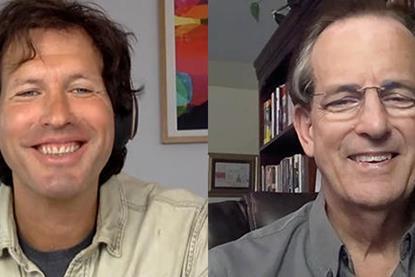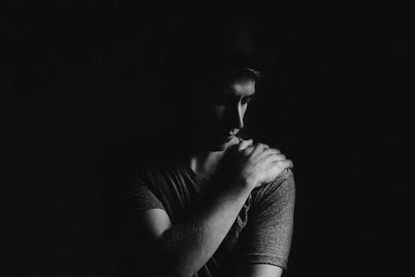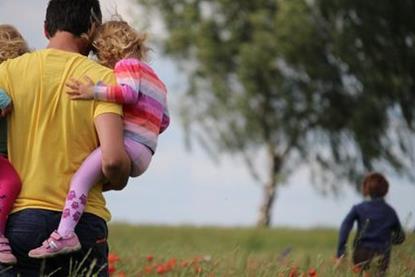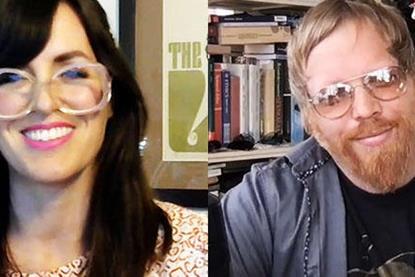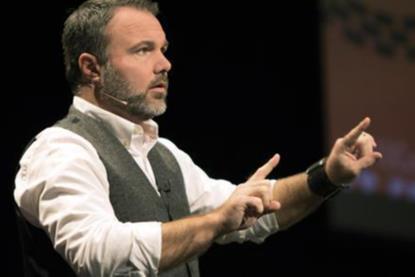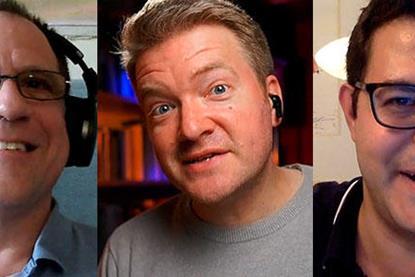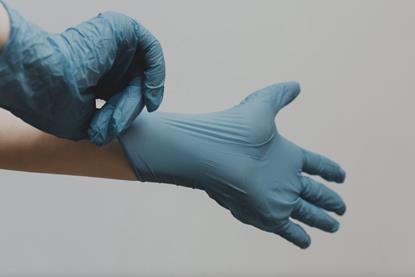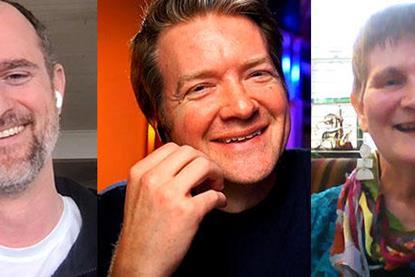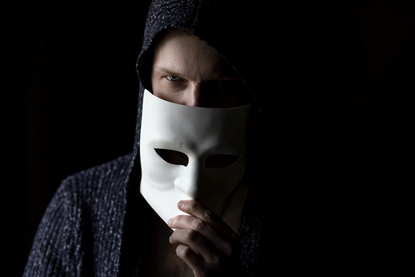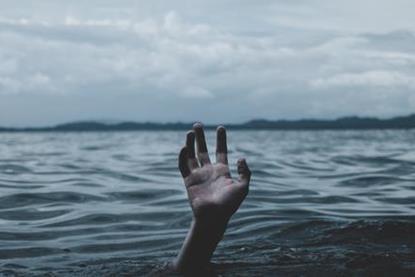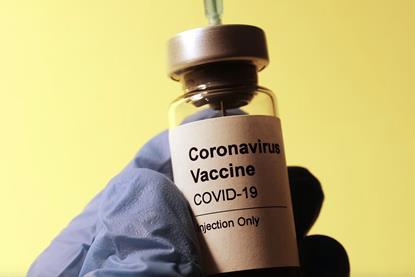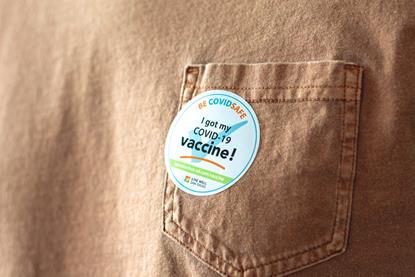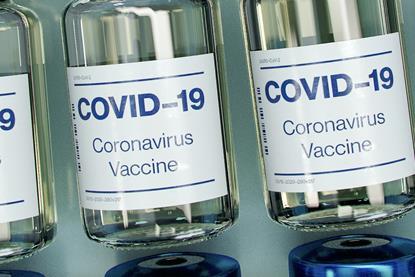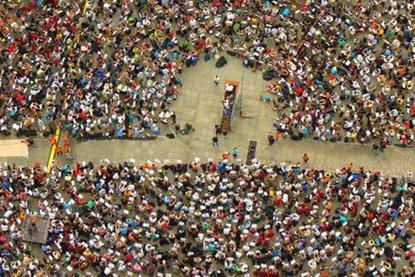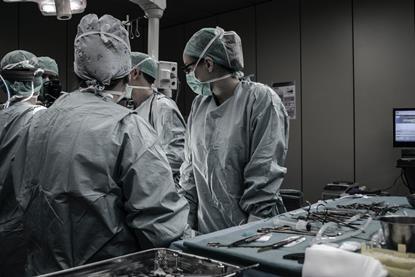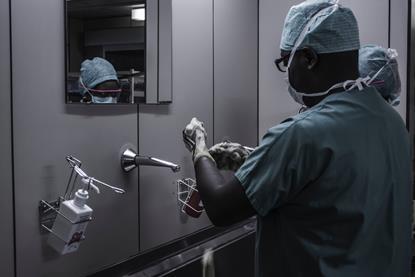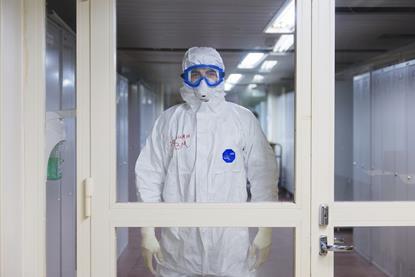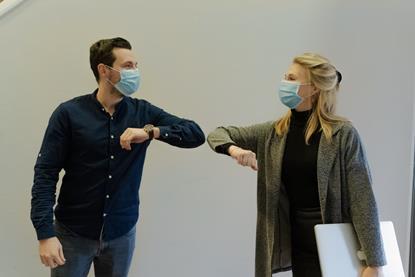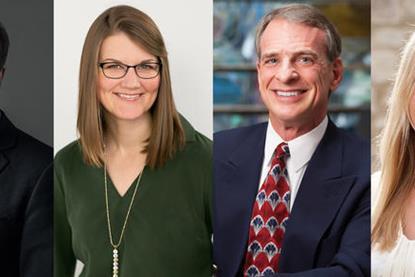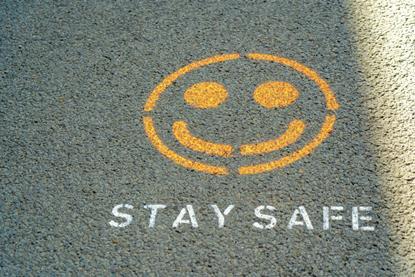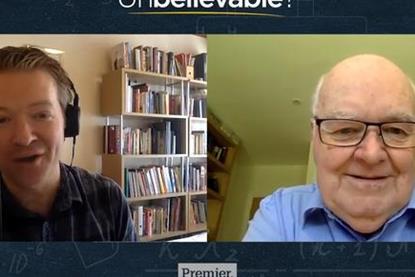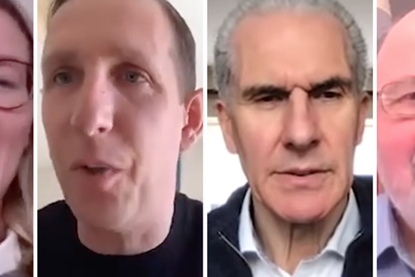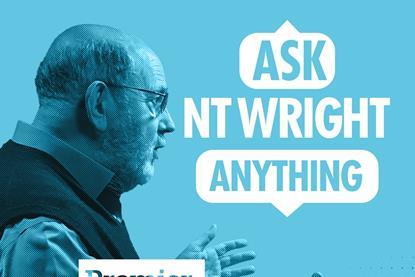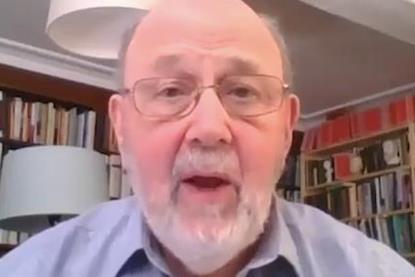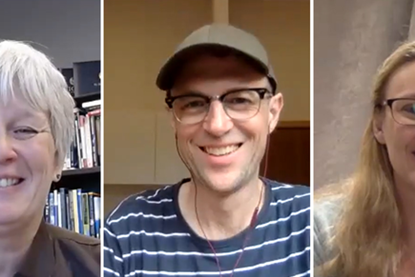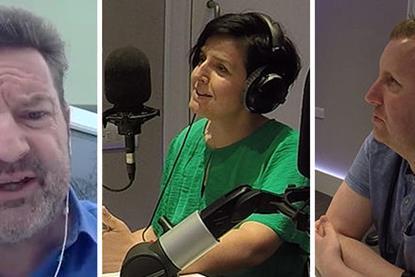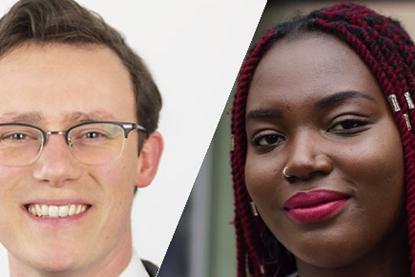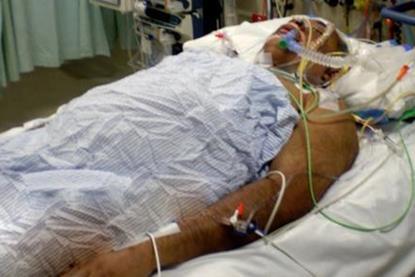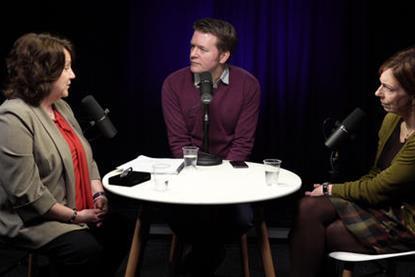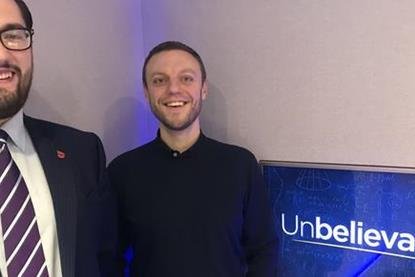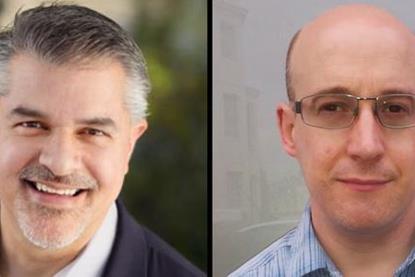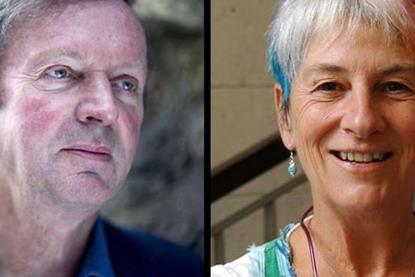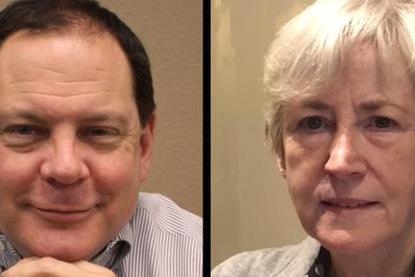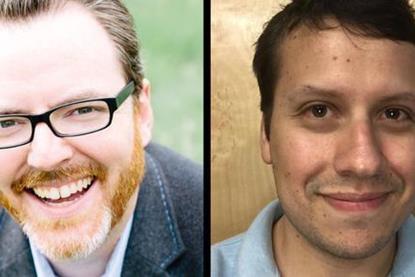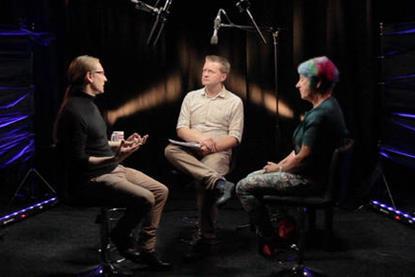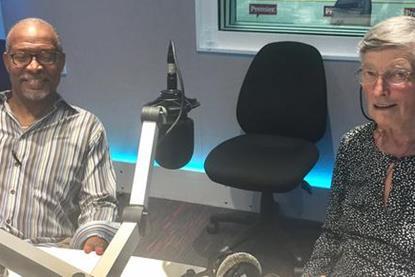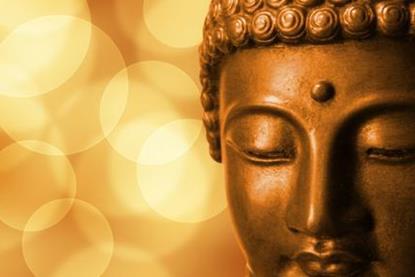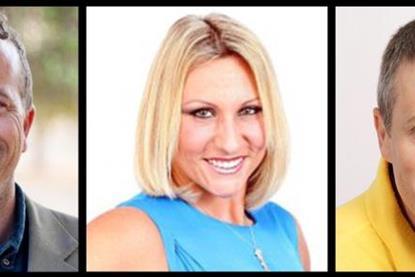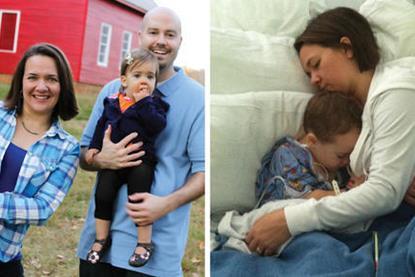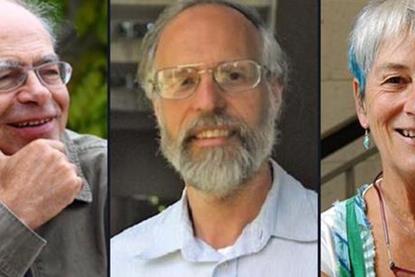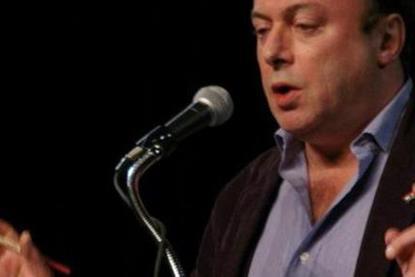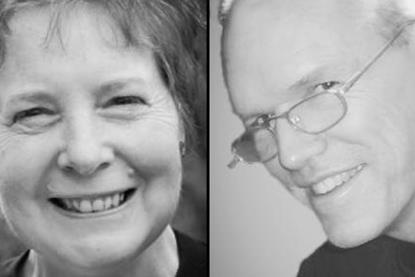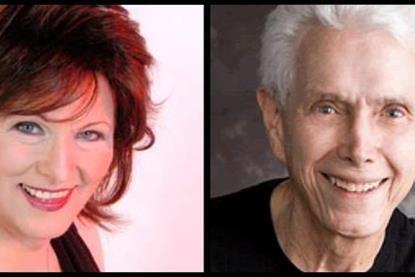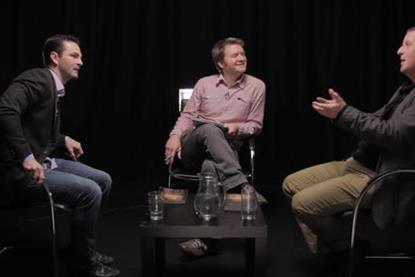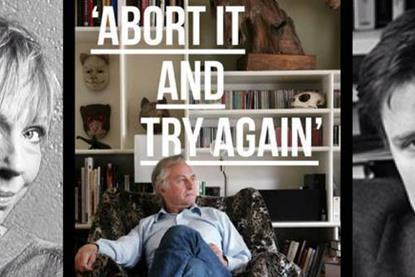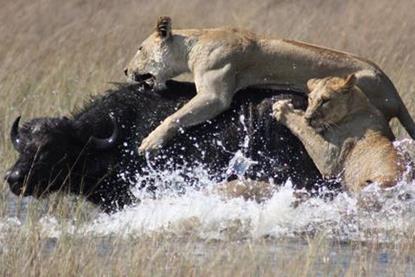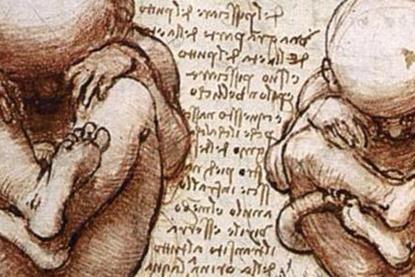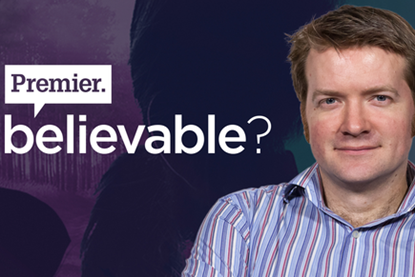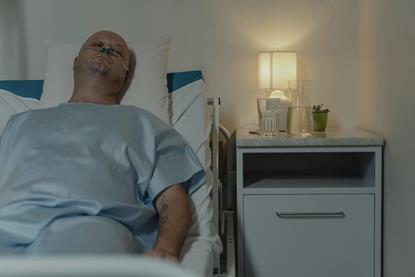Wellbeing
The CS Lewis Podcast #193 Leprechauns, fairies and the Holy Ghost
What did Warnie and Lewis get up to while holidaying in County Louth? How did he encounter leprechauns, fairies and the Holy Ghost? Plus, we hear about some of the key women in Lewis’ life: Mrs Moore, Joy and their housekeeper Vera Henry. Rev Paul Clayton-Lea, author of CS Lewis and the Wee County shares the second half of his talk given at the CS Lewis Group at Ulster’s spring mini symposium and answers audience questions.
Can Tarot & Astrology Open you to EVIL Forces? 🔮👻 Ex-Psychic Jenn Nizza and Horror Filmmaker Toby Watts debate Halloween, demons and horror
In this Halloween special, we examine the intersection of the occult, Halloween, and Christian perspectives on spiritual matters. Is Halloween merely harmless fun, or does it carry deeper, more sinister implications? Can activities like tarot readings and astrology open the door to evil forces? What does Christianity teach about demons—and is it possible for Christians to be possessed?
The CS Lewis Podcast #178 Scott Tuohy: A Lewis quotation changed my life
When scaffolder Scott Tuohy heard a quotation from CS Lewis while attending an Alpha course, he was so profoundly moved by it, he got the quote tattooed on his bicep the next day. His life has never been the same since. Here, he shares his story with Ruth Jackson.
The CS Lewis Podcast #177 Alister McGrath: Emotions, sentimentality and rational truth
Would Lewis have any advice for anyone struggling to make sense of their emotions? How do we respond to a culture or a generation who often prioritise emotional truth over rational truth? How do we avoid sentimentality? Are there any ways that Lewis has been particularly powerful spiritual mentor for you personally? How can Lewis’ lived out faith be helpful for us?
#122 Mirjam Schilling: Why did God create mosquitoes?
Virologist and theologian Dr Mirjam Schilling answers questions asked by a live audience at Holy Trinity Church, Aylesbury. This show was recorded in partnership with Aylesbury Vale Youth For Christ.
The CS Lewis Podcast #175 Alister McGrath: What would Lewis think of Jordan Peterson?
How does having a better understanding of a “big picture” give us hope, particularly in the midst of mental health struggles? How can we hold different aspects of our life together? Which travelling companions would Lewis recommend? What would Lewis make of public figures such as Tom Holland, Jordan Peterson and Douglas Murray, who speak about the coherence and positive impact of Christianity? Professor Alister McGrath explores Lewis as a spiritual mentor.
Assisted suicide: Euthanasia tourism takes off in the US amid fresh push to change law in Britain
Today we pick up a number of stories and updates in the conversation around assisted suicide. Long since legal in a growing number of states in the US, a new report has detailed how things are liberalising further. Some states now permit non-residents to cross state lines solely to die, creating a new market in euthanasia tourism for those living in less liberal parts of America.
The Man With 1000 Kids: The questions all parents should ask before embarking on sperm donation
A sperm donation scandal in the Netherlands is a helpful reminder of the ethical complications of this kind of reproductive technology, which can have lifelong implications for children conceived through it, says journalist Tim Wyatt
Unapologetic #116 Nicola Morrison: A trip to church saved my life
Nicola Morrison, an editor and former BBC reporter, has experienced many highs and lows in her personal and professional life. She shares her struggles with childhood trauma, mental health difficulties and career setbacks. Following a failed attempt to take her own life, Nicola visited a church, which changed the trajectory of her life forever. You can read more of her story in Victory is My Name.
The CS Lewis Podcast #167 Philip Tallon: How do hell, the Fall and beauty fit into Lewis’ theodicy?
How does Lewis perceive the Fall? Is he able to reconcile it with an evolutionary model? Where does the cross feature in The Problem of Pain? What did Lewis think of hell? In what ways does Lewis help us to recognise beauty and aesthetics in our discussions around theodicy? We continue our conversation with Dr Philip Tallon.
Mental health crisis: Résumé or eulogy
Neonatal consultant Erik Strandness reflects on whether focussing too much on “padding out our CVs” has contributed to the rising levels of mental health struggles
Are screens in the home damaging our kids?
Theologian and author Andy Crouch spoke about the dangers of technology on a recent episode of Matters of Life & Death. Journalist Tim Wyatt explores Crouch’s arguments
Are Louisiana’s mandatory Ten Commandments a bad idea?
Louisiana governor Jeff Landry recently ordered that every public school classroom must display a poster of the Ten Commandments – the first US state to do so. Author Drew Cordell shares why he believes this is unhelpful.
Unapologetic #108 Michael Lloyd: Why did God create wasps?
Why are our prayers not answered? Where does the cross fit into the problem of suffering? Why did God create creatures like mosquitoes, poisonous snakes and wasps? Does God always get his way? Can good ever come out of suffering? Rev Dr Michael Lloyd, author of Cafe Theology, continues his discussion about evil and suffering.
Is intelligent design a viable option?
Neonatal consultant Erik Strandness explores scientific method and the intelligent design movement in light of an Unbelievable? conversation on the topic
Women in apologetics: Truth matters
Julie Miller came to see how essential apologetics is when teaching English as a second language. Here, apologist Joel Furches shares a little of her story, including why she believes women play a crucial role in this area
How should Christians respond to euthanasia?
The UK Government are discussing legislation to potentially allow assisted dying for terminally ill adults. Here, apologist Clinton Wilcox shares some of the issues raised by euthanasia
Me and my shadow: how should we respond to our inner darkness?
With dark stories dominating our news cycles, Erik Strandness explores what our response should be to the darkness inside us
Is rebirth possible?
Neonatal consultant Erik Strandness explores what it means for Christians to be born again
Unapologetic #96 Jay Y Kim: Analogue presence in a digital world
Jay Y Kim shares his experience as a pastor in Silicon Valley. How is technology forming us? In what ways can we help young people live fruitfully in the digital space? How do we navigate AI? Are there any tips for finding rest in the midst of the busyness? In an era of misinformation, how do we decipher what is actually true?
Jack Nicholson got it wrong: We can’t even believe in truth, let alone handle the truth
Author Drew Cordell explores the nature of truth through the lens of a 90s classic movie
Unbelievable? Where is God to be found when you are told your cancer is terminal? Steve Legg, Allan Finnegan and Andy Kind
Where is God to be found when facing the no-joke reality of a terminal diagnosis for cancer? Two comedians, who are both Christians, are facing just this challenge. This discussion between Steve Legg and Allan Finnegan hosted by Andy Kind will transform the way you think about terminal illness. This uplifting show explores why two men in the prime of life feel closer to God than before they received their devastating diagnoses.
Michael Gungor’s deconstruction: Can we keep the baby when we throw out the bathwater?
Erik Strandness reflects on a show featuring musician Michael Gungor and pastor Evan Wickham on millennials, music and mystical deconstruction
Unapologetic #88 Phil Knox: Why do we need friends?
Evangelist Phil Knox, author of Story Bearer and The Best of Friends, shares why personal tragedy and the COVID pandemic led him to write a book about friendship. Why does friendship matter? How do we protect our friendships from modern pressures? And how do we help young people to engage healthily with technology and social media?
The inaugural CS Lewis Reading Day: Why should Tolkien geeks have all the fun?
CS Lewis podcaster, David Bates, shares why he helped initiate a campaign to commemorate Lewis with an annual Reading Day on November 29th
Pope Francis on why we need hope
The Pope shares his thoughts on how we can be people of hope in a world that desperately needs it
Can the Bible teach us anything about depression?
Rico Villanueva, Langham Partnership’s regional commissioning editor for Asia, shares how studying the psalms of lament have helped him with his bouts of depression
Unapologetic #78 Amy Orr-Ewing: Why are women central to the Christian story?
Dr Amy Orr-Ewing, author of Mary’s Voice, explores the context of Mary, mother of Jesus, and looks at why women play such a significant role in Christianity. Plus, what is the Magnificat, why is it so revolutionary? And how is it relevant today?
The CS Lewis Podcast #131 David Bates: CS Lewis Reading Day
David Bates and his team at Pints With Jack have helped establish a day to celebrate CS Lewis and his work. His fellow Inkling, JRR Tolkien, already has a special reading day, but “why should the Tolkien nerds have all the fun?”! Listen in to hear why David thinks Lewis is still relevant today and how you can get involved with the inaugural CS Lewis Reading Day on Lewis’ birthday - November 29th.
At the going down of the sun and in the morning, should we remember them?
As we approach Remembrance Day in the UK and Veterans Day in the US, Joel Furches explores whether we should be praying for our military
Cobbler turned missionary: How William Carey brought hope to the hopeless
Author Mark Roques explores the life of Baptist preacher William Carey
I don’t need God: How tragedy compelled an atheist to rethink his disbelief
Athiest Warren Prehmus had no need for God. However, when personal tragedy struck, he began to question his presuppositions and explore Christianity. Researcher Jana Harmon shares his story
Unapologetic #74 Michael Lloyd: Should we all study theology?
Rev Dr Michael Lloyd, author of Cafe Theology, shares his story including why he got ordained, how he ended up in academia and why he changed his mind on the ordination of women. He also discusses how to assess the veracity of doctrines and why he believes everyone should study theology.
Ask NT Wright Anything #189 Brexit, Abortion, Race and Critical Theory (Classic)
From the archives: Tom tackles a variety of questions on ‘hot button’ political issues that have been sent in, including the place of faith in politics, abortion, racism and ‘critical theory’
Is Western culture eroding Christianity?
Sam Reimer, professor of sociology and author of Caught in the Current, explores how authority, belief and behaviour have changed over the years and the impact this has had on faith
Is AI conscious and does it matter?
Dr Eve Poole considers whether we have to learn to be responsible for the souls we are creating now we are creating artificial intelligence and robots in our own image
Ask NT Wright Anything #188 Jean Vanier and when leaders let us down (Classic)
From 2020: In the wake of the news that L’Arche founder Jean Vanier was responsible for sexual abuse of women during his ministry, Tom Wright responded to questions from listeners let down by leaders and the church. Be part of the Ask NT Wright Anything live show in London at Unbelievable?
Matters of Life & Death: Origins of covid: Gain of function research, zoonosis, the Wuhan Institute of Virology, and truth over tribe
When the pandemic first spread beyond China there was a straightforward message from scientific elites: the virus came from a wild animal accidentally spilling over into humans, and any suggestion it might have instead been manipulated in a lab and then escaped was a quasi-racist conspiracy theory.
Bennu the asteroid: Why does the Universe exist and why should we care?
Nasa’s Osiris-Rex returned from a seven-year mission with asteroid Bennu’s dust, aiming to shed light on the Universe’s formation. Erik Strandness examines the project’s theological and philosophical impacts.
Are humans better than animals?
Apologist Nathan Rittenhouse shares his thoughts on Psalm 8 and its ramifications
Unbelievable? Coming to faith through Dawkins - Part 2: Is there a new New Atheism? Alister McGrath & Alex O’Connor
In the second part of their discussion based on the book Coming to Faith Through Dawkins, theologian Alister McGrath and YouTuber Alex O’Connor discuss where we may be heading in regards to religion and atheism.
Unapologetic #69 Phil Knox: Does evangelism matter?
Evangelist Phil Knox, author of Story Bearer and The Best of Friends, shares some of his story with Ruth Jackson, speaking about the impact of his dad’s death at a young age. Plus, they discuss why evangelism matters and how we can share our story and be a “good news person in a bad news world”.
Unbelievable? The Robot Race - Part 1: Could AI ever replace humanity? - Nigel Crook & Anil Seth
The Big Conversation - Episode 5 | Season 5
Is there more to life than mere matter?
Dr Erik Strandness explores the relationship between the soul, mind, brain, body and spirit following a recent Big Conversation about near death experiences
Do near death experiences contradict Christian belief and doctrine?
Journalist Heather Tomlinson explores near death experiences and theology in light of a recent Big Conversation on this topic
From radical atheist to Christian via rigorous intellectual study
Former atheist, Dr Stefani Ruper, was intellectually convinced of secular atheism, but found that it lacked substantive answers for her life. More than 13 years of scholarly pursuit of truth led her to choose belief in God. Jana Harmon shares her story
Has Martin Luther King Jr’s ‘dream’ been realised 60 years on?
Apologist Adam Coleman shares his thoughts about Martin Luther King Jr’s legacy 60 years after his iconic ‘I have a dream’ speech
Why I regularly listen to Martin Luther King Jr’s ‘I have a dream’ speech 60 years later
60 years on from Martin Luther King Jr’s ‘I have a dream’ speech, apologist Adam Coleman reflects on his grandfather’s first-hand experience of the March on Washington
Jesus is the true and better Tim Keller
Rev Sam Allberry, a close friend of Tim and Kathy Keller, delivered a moving tribute at Tim Keller’s memorial service on 15th August. Here’s what he said
Unapologetic #65 Ana Ávila: How to avoid burn out
Ana Ávila, author of Aprovecha Bien El Tiempo, shares her insights around how to identify and avoid burnout, how to rest well and how to master technology rather than letting it control us.
The CS Lewis Podcast #118 Evil, evolution and theological reflection in The Space Trilogy
Alister McGrath explores some of the theological themes within Lewis’ trilogy, such as incarnation, atonement and the problem of evil. How did Lewis view the relationship between science and religion? What did he think about evolution? How did he critique certain worldviews through his fiction?
Remembering Tim Keller: Jesus’ teachings only matter if the resurrection is real
Entrepreneur Max Anderson reflects on his New York pastor and friend’s apologetic teaching
Remembering Tim Keller: Religious people may be just as lost as the irreligious (maybe more)
Entrepreneur Max Anderson reflects on his New York pastor and friend’s teaching on the Prodigal Son
Remembering Tim Keller
Entrepreneur Max Anderson reflects on the many things he’s learnt from his New York pastor and friend
The CS Lewis Podcast #117 Vivisection, mental health, racism and sexism
We dive into some of the important issues explored in Lewis’ Space Trilogy. Why was he so vehemently opposed to animal experimentation? What would Lewis say to those experiencing mental health struggles today? Plus, Alister McGrath responds to the accusation that CS Lewis was sexist and racist.
Are we more than just our brains?
Following a recent Big Conversation, Dr Erik Strandness explores the relationship between the brain and mind, near death experiences, the existence of the soul and the perceived conflict between religion and science
Sex, drugs and rock ‘n’ roll: Why CS Lewis’ Space Trilogy is still relevant
The CS Lewis podcast recently launched a new series focussing on one of Lewis’ lesser known works of fiction, his Space Trilogy. Here, Ruth Jackson shares why she and Professor Alister McGrath think the books are worth a read, despite their length and difficulty
Unapologetic #62 Dr Jennifer Woodruff Tait: Does Christian history matter?
Dr Jennifer Woodruff Tait, managing editor of Christian History magazine, discloses how looking at the past can help us with the future. She shares some of the interesting steps in her career, from preaching to her stuffed animals at the age of 4, to professor, music director, librarian and priest (and brown belt in Karate!). Plus, she offers her thoughts around the Asbury revival.
Should Christians ever defend themselves with weapons?
Nigerian pastor Hassan John reflects on the anti-Christian violence in his home country and considers the appropriate response
Is it ever OK for Christians to be violent?
Apologist Clinton Wilcox explores whether the Bible mandates pacifism or if acts of violence can ever be justified
Food for thought: What has nutrition got to do with faith?
Erik Strandness takes a look at a number of biblical metaphors involving food and explores what they mean for our faith
How a sceptical engineer discovered that science, far from disproving Christianity, opened a way to faith
Ben Clifton grew up in a non-Christian household and didn’t encounter church until his wife’s mental health struggles led her to attend. Here, Jana Harmon tells the remarkable story of Ben’s journey from sceptic to apologist
Becoming a father: How a difficult birth and my subsequent PTSD diagnosis heightened my belief in God
Father’s Day can be a really difficult time for many people for a variety of different reasons. Here, Elliott Rae, who works to support and champion families, shares his experience of fatherhood, mental health challenges and helping men to be more vulnerable
Unbelievable? The occult, demons and exorcism: Is modern-day deliverance ministry biblical? With ex-psychic Jenn Nizza, pastor Mike Signorelli hosted by Billy Hallowell
Is the occult just harmless fun? Or are there hidden dangers to alternative spirituality, satanism, and even new age practices? Increasingly the debate is not about good vs evil but my truth vs your truth.
Riches to rags: How a millionaire lost nearly everything, but found God
Former atheist Stu Fuhlendorf felt no need for God, achieving high level of success and power in the business world. However, his achievements were tainted by emptiness and addiction, which helped him become open to his need for God. Jana Harmon shares his story
What can George Bush’s 1992 failed presidential campaign teach us about salvation?
Erik Strandness challenges us to rethink the way we share our faith for the sake of our young people
Why feminist Louise Perry is arguing for the restoration of traditional marriage and Christian sexual ethics
Journalist Heather Tomlinson shares her thoughts on the sexual revolution and sexual ethics following a recent episode of The Big Conversation
Unapologetic #53 John Swinton: Disability, learning difficulties and dementia
John Swinton, professor in practical theology and pastoral care at Aberdeen University and a former psychiatric nurse, challenges the way we approach disability, ensuring we create spaces where everyone belongs and has their spiritual needs met. We also discuss difficult questions around dementia, such as what it means to know God when you have limited conceptual intellectual capacity.
Unbelievable? Rod Dreher & Louise Perry • Christianity, the Sexual Revolution and the future of the West
The Big Conversation - Episode 2 | Season 5
Unbelievable? Is God Dead? - Dr. John Lennox and Dave Rubin’s Big Conversation
This week we play Justin Brierley’s personal favourite episode: the discussion he hosted live in California, between Christian apologist John Lennox and US talk show host Dave Rubin, from 2019.
Ask NT Wright Anything #166 Justin Brierley asks Tom Wright his own personal questions
Justin Brierley is moving on from hosting the Ask NT Wright Anything show. Before the baton gets passed on to fresh hands, he sits down with Tom to ask him the questions he would like to hear answered.
Unbelievable? Celebrating 17 years - Justin Brierley, Ruth Jackson, and Vince Vitale
The Unbelievable? show has been broadcasting for over 17 years. Justin Brierley and Ruth Jackson take a retrospective tour through highlights from the show from day one to some of the most significant debates that have been hosted, before being joined by Dr. Vince Vitale for a special announcement by Justin.
Ask NT Wright Anything #165 A pastor losing his faith writes in, plus more pastoral questions
In a special pastoral Q&A edition Tom responds to various questions on difficult family situations, unforgiveness and a church pastor who doesn’t know if he believes any more. Plus a musical treat from Tom. An archive show first broadcast in 2019.
Ask NT Wright Anything #162 Questions on sexuality and LGBT
In this replay podcast from 2019 Tom answered listener questions on how to have better conversations on sexuality in the church, co-habitation, whether the New Testament understanding of homosexuality was different to today and his thoughts on Transgender following a letter he wrote to The Times newspaper. First broadcast in 2019.
Ask NT Wright Anything #161 Housebound prayers, computer programming, art and music - what counts as kingdom work?
Tom answers practical questions about the role of those unable to be physically active - does their prayer and meditation make a difference in the Kingdom? A computer programmer questions whether his work is a worthwhile activity in Kingdom terms? Are there any forms of art that go against our image-bearing creativity?
Unbelievable? Where does order in nature and the cosmos come from? Stephen Meyer & Saleem Ali
Prof Saleem Ali of the University of Delaware is author of ‘Earthly Order: How natural laws define human life’ and describes the way order in the universe drives order in human and social settings. He engages with Dr Stephen Meyer of the Discovery Institute, whose book ‘The Return of The God Hypothesis’ makes the case that order in nature points to a divine mind.
Ask NT Wright Anything #160 Why bother improving the world? Can Christians attain perfection?
Why bother with earth and not just create heaven? Why try to make the world a better place if God is going to fix it? Is the world getting better or worse because of Christianity? Can Christians achieve perfection in this life, as Wesley claimed? Tom Wright answers listeners questions on the ‘now-and-not-yet’ of new creation.
Ask NT Wright Anything #159 What difference does prayer make? Tom shares his prayer habits
Tom answers listener questions on prayer including: ‘Is prayer just telling God what to do?’ and ‘What difference does prayer make if God has already decided what to do?’. Kelly is nervous about praying out loud before a meal in public, and Jennifer is questioning the legitimacy of public displays of prayer in the USA. Tom responds to these questions and shares his own habits of prayer, including keeping a prayer diary.
Ask NT Wright Anything #158 Why don’t I hear from God any more?
Tom and Justin are back with a fresh batch of questions from listeners who are having trouble hearing from God. Nicole asks why ‘Ask and you shall receive’ doesn’t seem to work in practise? Shelagh says she doesn’t hear from God the way she used to - is it because of disobedience? Robert asks how you can tell if you have misheard from God? Tom also gives an update on his health and work and reflects on how he hears from God.
Why would God allow the Turkey-Syria earthquake?
In light of the tragic Kahramanmaras earthquake, apologist Dr Sharon Dirckx shares her thoughts on how we reconcile the idea of a good and powerful God with the presence of natural disasters
Unapologetic #39 Lauren Windle: Being single and dating in a marriage obsessed Church
As we approach Valentine’s Day, Ruth Jackson carries on her conversation with author Lauren Windle, who shares her thoughts on singleness, dating and why the Church seems so obsessed with marriage.
Help! My teenager doesn’t believe in God
Pastor Marc Lambert looks at how parents can lovingly walk alongside their children as they doubt, question and rebel against Christianity
Dear Culture: What are you doing about teen suicide?
Erik Strandness voices his concerns about young people in today’s society and shares his thought on the rising number of teen suicides
Unbelievable? Sean McDowell live Q&A on sexuality, transgender and culture war questions
Apologist and author Sean McDowell joined Justin along with hundreds of Unbelievable? listeners for a live show talking about Sean’s new book ‘A Rebel’s Manifesto’ and taking questions on LGBT, same-sex marriage, transgender, divorce, theology and more.
Unbelievable? Covid, Churches and the Frankfurt Declaration: Jamie Franklin & John Stevens debate Christian liberty and government overreach
As the global pandemic subsides, the way the Covid lockdowns were implemented in churches still divides Christians. The Frankfurt Declaration has been signed by church leaders who are concerned that civil and religious liberties are being eroded by Government overreach.
Church abuse, leadership scandals & RZIM: Rachael Denhollander, Amy Orr-Ewing, Mike Cosper & Diane Langberg
Four guests and hundreds of attendees gathered with host Justin Brierley for the live webinar event ’Falling From Grace: Addressing Power, Leadership, and Abuse in the Church.
Matters of Life & Death: Archie Battersbee 1: The invention of ‘brain death’, a breakdown in trust, the child’s best interests, and how to turn off life support
Twelve-year-old Archie Battersbee died on 7 August, after months of legal wrangling between doctors who believed he was brain dead and wished to end life support, and his family who resisted this.
Matters of Life & Death: Suffering 2: Rediscovering lament, reciting psalms in bomb shelters, the Gethsemane prayer, and the realism of Christian hope
Resuming our conversation about suffering, we think through some faithful Christian responses to evil and loss.
Unbelievable? Mikhaila Peterson & Jon McCray (Whaddo You Meme) • Are Millennials and Gen Z ready to believe in God?
Almost half of Millenials and Gen Z in the USA identify as ‘nones’ (having no religious affiliation). Mikhaila Peterson who runs a popular Youtube channel and Podcast talks about her own recent journey to faith along with the journey of her father, renowned psychologist Jordan Peterson.
Unbelievable? The Mystery of Consciousness - Panpsycast event with Rowan Williams, Anil Seth, Laura Gow, Philip Goff & Jack Symes
We’ve teamed up with the Panpsycast podcast to bring you this week’s episode of Unbelievable? ‘The Mystery of Consciousness’ was a live audience event recorded at the Tung Auditorium in Liverpool. The panellists are Rowan Williams, Anil Seth, Laura Gow and Philip Goff, moderated by Panpsycast host Jack Symes.
Matters of Life & Death: Space 1: The James Webb telescope, extra-terrestrial life, hobbits of the universe and the doctrine of creation
In the week the first images from the new James Webb Space Telescope were beamed back to Earth, we are joined by theologian Andrew Davison to consider the spiritual value of cosmology and astrophysics.
Matters of Life & Death: Simulation 2: Zoom’s face-smoothing, chatbot therapists, Trinitarianism, and evil as counterfeit
Today we’re going back to our conversation about simulation for part two of this re-broadcast.
Matters of Life & Death: Simulation 1: Deep fakes, David Beckham speaking Mandarin, Jean Baudrillard’s four phases, and image as sacrament
For the next two weeks we’re dipping back into the Matters of Life and Death archive to bring you an episode we first broadcast last year. It’s all about simulation.
Matters of Life & Death: Prenatal screening 2: The prohibition on soothsaying, transcending genetic determinism, a client-technician relationship and Heidi Crowter’s joyful self-advocacy
Could it be that some knowledge – including whether your unborn child has a serious genetic condition – is actually not helpful, and even harmful to us?
Iain McGilchrist & Sharon Dirckx • Brain science, consciousness & God: Is there a master behind our mind?
What does the science of brain chemistry and consciousness tell us about the nature of our mind and our cosmos?
Matters of Life & Death: Prenatal screening 1: Peering into the unknown, less than 1/150, blood tests over the internet, and disability doublethink
Pregnant women today are offered a battery of tests and screening for their unborn child, looking for an ever-increasing range of conditions and risks.
Matters of Life & Death: Old people 2: Aging congregations, transcendence at the Arsenal, understanding life backwards, and honouring prayer warriors
Demographic trends reveal clearly the next century will be one increasingly dominated by older people. If God is giving us a lot more folk in their later years, what are they for in church life?
Matters of Life & Death: Old people 1: The demographic transition, Reverend Thomas Malthus, Hasidic Jewish outliers, and the grey vote
The world’s population is rapidly becoming older and older, with many developed nations seeing unprecedented proportions of their citizens in retirement age.
Matters of Life & Death: Robot rights 2: Rejecting self-definition, the citadel of human uniqueness, rehashing ‘God of the gaps’, and evangelising at androids
In the second part of our conversation on robot rights, we explore three Christian responses to calls for robot personhood, spanning the spectrum of hostility to optimism about the development.
Matters of Life & Death: Robot rights 1: Isaac Asimov’s Three Laws, fauxbots, whimpering miniature dinosaurs, and inherent or conferred personhood
If and when autonomous and intelligent robots come into existence, should they be granted rights, or even personhood?
Matters of Life & Death: Pregnancy crisis 2: Paternalistic gynaecologists, holding truth with grace, ambiguity in the ultrasound clinic, and refusing the culture war
Abortion is a flashpoint issue in both the church and wider culture, with the very language you choose used as a cudgel for either side.
Matters of Life & Death: John Stott 2: Christians in the public square, an untried ideal, talking and living like Jesus, and the challenge of evangelical hagiography
This is part two of our re-broadcast of last year’s John Stott episode, to mark what would have been his centenary.
Matters of Life & Death: John Stott 1: Double listening, a conservative radical, redefining ‘the ministry’ and salt as preservative
This month marks 101 years since the late John Stott was born, and his centenary last year prompted a flurry of events to mark the centenary of this highly influential vicar, Bible teacher and evangelical leader.
Matters of Life & Death: Palliative care 2: Resisting assisted dying, the ‘superskill’ of listening, DNAR discussions, and euthanasia-free-zones
In Britain as in many countries there is a growing campaign to legalise assisted suicide and to make doctors prescribe on request lethal drugs to terminally ill patients.
Matters of Life & Death: Palliative care 1: Dogs and Guinness on the wards, ‘living until you die’, deathbed prayers, and complicated grief
Over the past 60 years a new field of medicine has emerged – palliative care.
Matters of Life & Death: Climate anxiety 2: Listening to the Global South, alienation from creation, throwing pebbles into God’s river, and rediscovering lament
Following on from our discussion last week on the rise of climate fatalism, we discuss what an authentically Christian response to our environmental crisis would look like.
Matters of Life & Death: Climate anxiety 1: ’Delay means death’, media apathy, Extinction Rebellion, and fatalism among the young
The latest report from the UN’s climate scientists was both incredibly downbeat about climate change and almost entirely ignored by a media fixated on Ukraine.
Matters of Life & Death: Human enhancement 2: Techno-optimism returns, the yuck factor, cultivating our bodies, and the divinisation of humanity
In this episode we pick up our conversation from last week about transhumanism and how technology might redefine what it means to be human.
Matters of Life & Death: Human enhancement 1: Calico, the dragon tyrant, transhumanism, and monkeys playing Pong
Billions of dollars are currently being spent by a suite of private firms, mostly in Silicon Valley, pursuing radical research to enhance human capacities.
Matters of Life & Death: Relaunch: How we started, baby boomers and millennials, the pandemic as catalyst, and the signal to noise ratio
To mark our arrival on the Premier network, we recap how Matters of Life and Death began and what we hope our intergenerational conversations might achieve.
The CS Lewis Podcast #37 Mental health and the meaning crisis
Alister McGrath and Justin Brierley continue their conversation on the ‘meaning crisis’ in the West and how Lewis’ wisdom applies to today’s world and the modern mental health crisis.
Matters of Life & Death: Coronavirus: The Omicron variant, mandatory vaccination, pandemic solidarity, and memories of authoritarianism
The Omicron variant has in a few short weeks almost taken over the pandemic.
Matters of Life & Death: Reproductive technologies: the ’Google baby’, Oliver O’Donovan, 14-day-old embryos, and techno-optimism
This week we are resuming our conversation about infertility which begun in our previous episode.
Matters of Life & Death: Infertility and IVF: Hidden wounds, premature quintuplets, embryo donation and the procreative-unitive bond
Today we are delving into a complex and sensitive topic – infertility and IVF.
Unbelievable? Should Christians practise Yoga? Mike Shreve and Chris James
Two former high-level Yoga practitioners, Mike Shreve and Chris James, tell their stories of converting to Christianity and engage the question of whether Christians should practise Yoga.
Matters of Life & Death: Assisted dying: The Meacher Bill, radicals in the Lords, Canada’s slippery slope and fragile conscience protections
This week we’re digging into assisted dying. A bill to legalise it in England has been introduced to parliament – what does it propose and how likely is it to actually become law?
Ask NT Wright Anything #85 Should I have a vasectomy? And other family questions
Is using punishments on children a form of coercion? What do you think about contraceptives? What children’s resources would you recommend?
Unbelievable? Are psychedelics a path to spiritual enlightenment? Ashley Lande vs Peter Sjöstedt-Hughes
There has been a revival of interest in psychedelics & hallucinogenic drugs. But are they a path to enlightenment or a spiritual dead end?
Matters of Life & Death: Abusive leadership
Mark Driscoll, the hermeneutic of suspicion, Sigmund Freud’s chaise longue, and Paul-Timothy relationships
Matters of Life & Death: The Robot Will See You Now
This episode was inspired by John’s new book – The Robot Will See You Now
Unbelievable? Ancient wisdom and the meaning crisis - John Vervaeke and Sohrab Ahmari
The West is experiencing a meaning crisis says cognitive science and psychology professor John Vervaeke. He discusses the solutions with Catholic convert Sohrab Ahmari, author of ‘The Unbroken Thread: Discovering the wisdom of tradition in an age of chaos’.
Matters of Life & Death: Coronavirus: Miscounting deaths, the Sun’s front page, key workers with long covid and vaccine generosity
It’s been almost six months since we last dedicated an episode to covid, and since then a lot has happened.
Unbelievable? Should Christians embrace the Enneagram? Todd Wilson & Marcia Montenegro
The Enneagram has become a wildly popular personality tool in secular and spiritual circles. But is it a theologically valid way of understanding human psychology? Pastor and theologian Todd Wilson, author of ‘The Enneagram goes to church’ believes the Enneagram can be a transformative tool for churches. Ex-new ager Marcia Montenegro, author of ‘Richard Rohr and the Enneagram Secret’ believes it is a spiritual deception.
Matters of Life & Death: John Stott: Double listening, salt as preservative, incarnational mission, and the challenge of evangelical hagiography
Last week marked 100 years since the late John Stott was born and there has been a flurry of events to mark the centenary of this highly influential vicar, Bible teacher and evangelical leader.
Matters of Life & Death: Simulation: Deep fakes, image as sacrament, David Beckham in Mandarin and therapy chatbots
Today’s topic is simulation. We live in an era when digital technology is making it increasingly easy and cheap to create fake but compelling images or videos of people, or even entirely artificial human-like personalities.
Matters of Life & Death: Digital church: Worship on Zoom, pandemic revival, time-shifting and Gnosticism
This episode explores one of the most significant and potentially long-lasting ways the covid pandemic has affected church life – the shift to digital.
Why I’m giving up complaining for Lent
With everything going on around the world, I nearly forgot that this week marks the beginning of Lent. The 40-day-period, named after an old English word meaning ‘lengthen’, is an opportunity to reflect on the cross and resurrection as we approach Easter. Christians have traditionally used this time to either give or take something up, and as I pondered what to do this year, I was drawn to a previous Lenten fast.
Ask NT Wright Anything #52 ‘I wish I didn’t exist’. Pain and suffering Part 2
Tom shares his thoughts on heart-breaking pastoral questions from listeners around how to respond to grief and mental health. You can listen to part one of the podcast here.
Matters of Life & Death: Social media and free speech: Fake news, Facebook’s ’Supreme Court’, the Capitol riot and YouTube algorithms
In today’s episode we’re taking a sideways step from the covid pandemic and instead are discussing social media and free speech.
Ask NT Wright Anything #51 Pain and suffering Part 1
Tom shares his thoughts on the difficult questions listeners have around issues such as dementia, death, the global pandemic and whether God himself suffers.
Matters of Life & Death: Coronavirus: Misinformation
Microchips. Bill Gates. The mark of the beast. 5G cell towers. False positive rates. Big pharma. DNA alteration. It’s been hard to avoid the swirling morass of misinformation and conspiracy theories around the pandemic.
Matters of Life & Death: Coronavirus: Vaccines - part 3
Can Christians be given the vaccine without compromising on their religious convictions?
Matters of Life & Death: Coronavirus: The second lockdown
Is this crude, blunt instrument really the best way to tackle the second wave of the covid pandemic?
Matters of Life & Death: Coronavirus: Vaccines - part 2
We received a fascinating question from a listener after our last episode on vaccines, picking up on the competing and perhaps contradictory philosophies behind the anti-vax movement.
Matters of Life & Death: Coronavirus: Vaccines - part 1
There are about 40 different potential covid vaccines already being tested on humans, with almost a hundred more at earlier stages of development in the lab.
Matters of Life & Death: Coronavirus: Mental health, anxiety and hope
We’re back after a slightly longer than expected summer break with a new episode, all about our fears, anxieties and hopes amid the pandemic.
Ask NT Wright Anything #41 Brexit, Abortion, Race and Critical Theory
Tom tackles a variety of questions on ‘hot button’ political issues that have been sent in, including the place of faith in politics, abortion, racism and ‘critical theory’.
Matters of Life & Death: Coronavirus: Technology - part 2
In the second part of our conversation on technology during the coronavirus pandemic, we look into our crystal balls and try to imagine what the world of tech will look like in the future, thanks to Covid-19.
Matters of Life & Death: Coronavirus: Technology - part 1
One of the perhaps unexpected results of the coronavirus pandemic is how it has thrown up some fascinating debates about technology.
Matters of Life & Death: Coronavirus: Death and spirituality during a pandemic
Rarely it is deemed polite to mention the uncomfortable fact that one day we all will die, let alone try to bring faith or spirituality into that conversation. But in the midst of a pandemic, is that changing?
Ask NT Wright Anything #37 Is the world doomed? Global justice and climate change
In another show recorded pre-lockdown, Tom answers questions from listeners on whether the world is getting better or worse, on poverty and economic justice, and what climate change activism means for the theology of new creation.
Matters of Life & Death: Coronavirus: Life in the NHS
In this episode we examine what life in the NHS has been like during the Covid-19 crisis.
Matters of Life & Death: Coronavirus: The ethics of triage
First come, first served? Or key workers and politicians before everyone else? How can doctors decide who to treat in a healthcare emergency when there are not enough beds or ventilators to go around?
Matters of Life & Death: Coronavirus: Thinking as a Christian during Covid-19
Our third episode on coronavirus zooms in to focus on how Christians should be thinking and acting during the pandemic.
Coronavirus: How this pandemic is unlike anything before
In this second episode in our series on coronavirus, we explore how Covid-19 is different to plagues in the past.
Unbelievable? Is it time to end the war on drugs? Peter Hitchens vs Christina Dent. Plus William Lane Craig and Amy Orr Ewing on God, atheism and Covid 19
Peter Hitchens and Christina Dent, two Christians with very different views on drug legalisation, debate whether or not decriminalisation is the way to combat drug abuse.
Matters of Life & Death: Coronavirus: Christians in times of plague
Our first ever episode of Matters of Life and Death kicks off a short series on coronavirus.
Becky Pippert: Evangelism during COVID-19
Evangelist Becky Pippert, bestselling author of ‘Out Of The Saltshaker’, talks to Justin Brierley about how Christians can be a faithful witness to Christ during the COVID-19 lockdown and about her new book ‘Stay Salt: The world has changed. Our message must not’.
Unbelievable? John Lennox: Where is God in a Coronavirus world?
In a midweek bonus episode Justin talks to Oxford professor and Christian thinker John Lennox about his new book ‘Where is God in a Coronavirus World?’.
Unbelievable? Lockdown special feat. Nicky Gumbel, Megan Cornwell, Andrew Wilson, Esther O Reilly, Will van der Hart and NT Wright
Justin speaks to Christians leaders, thinkers and theologians from lockdown in the UK and USA with a variety of responses to Coronavirus.
Tom Wright on being a Christian during Coronavirus ∕∕ Ask NT Wright Anything
In a podcast special recorded from his home in Oxford where he is self-isolating with his wife Maggie, Tom talks to Justin about the Coronavirus pandemic.
Ask NT Wright Anything #33 Tom on Coronavirus, self-isolating and praying through crisis
In a podcast special recorded from his home in Oxford where he is self-isolating with his wife Maggie, Tom talks to Justin about the Coronavirus pandemic. They cover: How Christians can maintain spiritual health during isolation, the pastoral implications for churches now and in the future, and why God created a world where disease and sickness exist.
Unbelievable? Coronavirus: How will it change the church and the world? AJ Roberts, Mark Sayers and mystery guest
In a special edition of the show, recorded from home, Justin looks at the present Coronavirus crisis, how the pandemic will change global society and how the church can respond.
Ask NT Wright Anything #32 Pastoral questions on porn, personal tragedy and coming back to faith
Tom answers listener’s pastoral questions including a man racked by guilt over whether his wife’s miscarriages were a judgment on his porn addiction, a family wrestling with the death of a family member, and someone on a journey back to faith but unsure where to begin.
Ask NT Wright Anything #30 Questions about marriage
Tom answers listener questions about marriage including: What will our married relationships look like in the new creation? What advice do you have for someone about to get married? What do you think about divorce? Can I get married to a non-Christian?
Ask NT Wright Anything #25 When Christians lose their faith
In the wake of two high profile Christians who have renounced their faith, Tom responds to listener questions on what defines being a Christian, whether we can lose our salvation, and what to do when a loved one cannot respond to the Gospel because of dementia.
Unbelievable? Should Christians rethink disability and healing? Damon Rose, Zoe Heming and Ian Paul
Damon Rose produced a BBC radio documentary and article about his experience of being a blind non-believer who is sometimes approached by Christians to pray for his healing.
Unbelievable? Is abortion a human right? Ryan Christopher vs Barbara Ntumy
Recent pro-life legislation in certain US states has reignited the debate about access to abortion. In the UK activists are lobbying for abortion to be decriminalised in Northern Ireland. So, is abortion a healthcare right? Or should the rights of the unborn child also count?
Unbelievable? Did God raise Dr Sean George from the dead? Sean George, Hans Vodder and Bradley Bowen
Recorded live at the North West Miracles Conference, medical doctor Sean George tells his story, along with medical evidence, of how his heart stopped for an hour and 25 minutes, before his wife’s prayer brought him back to life again.
Unbelievable? Debating abortion clinics - Sue Thayer (ex-Planned Parenthood) vs Ann Furedi (BPAS)
This programme covers sensitive issues and includes descriptions of abortion procedures. Listener discretion advised.
Unbelievable? Render unto Caesar - Should the church keep out of economic politics? Andy Walton vs James Price
The Archbishop of Canterbury Justin Welby gave a keynote speech at the UK Trade Union Congress in September 2018 calling for the government to change its tax and welfare policies in order to support the neediest in society.
Unbelievable? Debating embryonic stem cells & biotechnology - Fuz Rana & Robert Stovold
Stem cells are an early development form of cells with the potential to turn into any part of the human system. They are used medically for regenerative therapy to treat many conditions. However stem cells have traditionally been harvested from early-stage embryos causing concerns for those who believe life begins at conception.
Unbelievable? Debating science and spiritual practices – Rupert Sheldrake vs Susan Blackmore
Rupert Sheldrake is often regarded as a maverick in science. He had his TED talk on the “Science Delusion” banned after other scientists objected. In his new book “Science and Spiritual Practices” he makes the case for the proven scientific benefit of religious practices.
Unbelievable? Is miracle healing for real? Ken Fish vs Frances Janusz + 2 healing stories
Christians as well as sceptics are often dubious of miracle healing claims. Ken Fish trained under John Wimber and now travels the world with Kingdom Fire Ministries to heal and train people. He believes thinking christians should embrace the miraculous as part of their faith and that it can serve as a sign to sceptics of Christ’s power.
Unbelievable? Is Science Mike right about God, evidence and the benefits of believing? Mike McHargue & JD Walters
Mike McHargue (aka Science Mike) joins Justin again to revisit his book ‘Finding God In The Waves’ about his deconversion to atheism and reconversion to Christian faith.
Unbelievable? Debating out-of-body and near-death experiences: Susan Blackmore & Graham Nicholls
As as student Susan Blackmore had an out-of-body experience that convinced her of the paranormal. However, after years of research, she came to the conclusion that such experiences are a purely brain phenomenon and not evidence of anything supernatural. Her new book ‘Seeing Myself: the new science of out-of-body experiences’ tells her story.
Unbelievable? An ex-abortionist & pro-choice doctor debate - Haywood Robinson vs Wendy Savage
Warning: This programme contains descriptions of abortion procedures.
Unbelievable? Buddhism, Christianity, Nirvana & Salvation - Alex Crowe & Ken Samples
Alex Crowe is a Buddhist who engages with Ken Samples author of ‘God Among Sages: Why Jesus is not just another religious leader’ that compares and contrasts Jesus with founding figures from all the main religions.
Unbelievable? Is porn harmful to society? Matt Fradd, Charlotte Rose and Adam Scarborough
Online pornography is a multi-billion dollar industry. But what effect is its proliferation having on those who consume it? Matt Fradd, author of The Porn Myth, argues that science is showing that widespread porn addiction is adversely affecting relationships, sexuality and society.
Unbelievable? How I lost my child but kept my faith - Jessica Kelley
In a New Year’s Eve special, Justin interviews two women involved in theology and apologetics in different ways.
Unbelievable? Is human life intrinsically valuable? Peter Singer, Richard Weikart & Susan Blackmore
Richard Weikart, professor of history at California State University, joins Justin to talk about his new book ‘The Death of Humanity’. He says the loss of belief in the value of human life is leading to disastrous consequences for society.
Unbelievable? Was Christopher Hitchens right about religion? Peter Hitchens, Ed Turner & Peter Harris (plus Unbelievable? 2016 announced)
Until his death from cancer over four years ago, Christopher Hitchens was one of the preeminent figures of new atheism: a prolific writer who was eloquent, witty and in great demand for his speaking and debating.
Unbelievable? Are Christians happier than atheists? Ann Morisy & Craig James
The latest survey from the UK Office of National Statistics shows that religious people are happier than atheists. http://www.premier.org.uk/News/UK/Christians-more-happy-than-atheists
A Christian & an Atheist debate the purpose of suffering
Atheist philosopher, Julian Baggini and Christian apologist, Vince Vitale sat down with Justin Brierley to share their perspectives on the purpose of suffering.
Unbelievable? Caitlyn Jenner & Transgenderism: trans & ex-trans Christian debate
Gender Dysphoria is a condition in which a person feels their body does not match the gender they identify with.
Unbelievable? Why does God allow suffering? Vince Vitale & Julian Baggini
Following atheist Stephen Fry’s viral anti-God video, the question of how a good God could allow suffering has come into focus again.
Suffering Debate ∕∕ Unbelievable? with Justin Brierley
The full version of the debate on suffering. Justin is joined by Julian Baggini and Vince Vitale, as they go head to head on this most important question. Why Suffering?
Unbelievable? Abort it and try again? Ann Furedi & James Mumford debate abortion and disability
When Richard Dawkins tweeted ‘abort it and try again’ to a follower who raised a question about pregnancy and Downs Syndrome, there was a public outcry. Yet each year over 1000 pregnancies are terminated in the UK because of screening for Downs Syndrome.
Unbelievable? Animal suffering and God - Michael Murray vs Phil Harper
Christian Philosopher Michael Murray wrote a book in 2008 making a defence of God in the face of millennia of animal suffering. He presents his arguments to atheist Phil Harper (aka Skydivephil).
Unbelievable? Abortion: A woman’s choice or a baby’s life?
The abortion debate reared its head again this summer after controversial tweets by Richard Dawkins made the news.
Unbelievable?: How do we solve world poverty? Wayne Grudem vs Richard Glover
Wayne Grudem is a theologian known for his conservative approach to both doctrine and economics. His new book The Poverty of Nations: A Sustainable Solution (co-authored with economist Barry Asmus) makes the case that pouring aid into developing countries is a failed strategy.
Graphic abortion images - Anne Furedi vs Gregg Cunningham public debate - Unbelievable?
Ann Furedi of the British Preganancy Advisory Service (the UK’s largest abortion provider) debates Gregg Cunningham of the pro-life Centre for Bio-Ethical Reform.
Imagination, suffering, abortion & atheism 2013 Conference videos - Unbelievable?
Justin launches the Video Website of Unbelievable? The Conference 2013 www.premier.org.uk/apologetics
Kermit Gosnell & the abortion debate - Unbelievable?
In the USA Kermit Gosnell is being tried on counts of murdering children born alive in illegal late-term abortions at his unsanitary practise in Philadelphia.
Is the religious right wrong? Brian McLaren, Andy Walton, Bryan Fischer, Alan Craig - Unbelievable?
The religious right wing primarily campaigns on abortion and homosexuality - but is this the way Christians should be involved in politics?
New Year’s Eve Special inc Robertson, Lennox, Driscoll & Craig - Unbelievable? 31 Dec 2011
A varied New Year’s Eve show with contributions from Revd David Robertson on his life-threatening illness. Reflections on the passing away of Christopher Hitchens from listeners and debate oppponent Prof John Lennox. Humorous “Praxman &…” sketches. An extract from a forthcoming interview with sometimes controversial US pastor Mark Driscoll. Audio from the Reasonable Faith Tour in Cambridge and more
Demons: Do they exist? Different Christian views - Unbelievable?
Three Christians of different theological persuasion discuss the existence of demons. John Tancock (JT) is involved in Charismatic Church leadership. He believes demons are real. As well as pursuing apologetics, he is involved in deliverance ministry and had regularly prayed for demons to be cast out of people. Will Van Der Hart is a vicar in the Church Of England and a founder of Mind and Soul - helping Churches to understand mental health issues.
Has Neuroscience killed God? Dr Alasdair Coles vs Martyn Frame - Unbelievable?
Continuing our Mind, Body and Soul month of programming on Premier, Justin is joined by a Christian and an atheist as they discuss whether people’s religious experiences can be explained by brain activity alone. Revd Dr Aladair Coles is an academice neurologist in Cambridge and part of the Faraday Institute’s Test of Faith initiative. He says that even though neuroscience has helped us understand the brain activity of religious people, atheist scientists such as Sam Harris have not thereby disproved God.
Unbelievable? - Is there justification for abortion?
Recent statistics on abortion in the UK saw just under 190,000 abortions in 2010. Figures were also released for late abortions carried out because of physical and mental disability.
Unbelievable? - William Lane Craig vs AC Grayling debate on God & Evil
William Lane Craig & AC Grayling debated at the Oxford Union in 2005. Does the existence of evil and suffering in the world preclude the existence of the Christian God?
Unbelievable? - Can Christian morality inform secular society?
Lord Richard Harries is a life peer in the British House of Lords and the former Bishop of Oxford. His book “The Re-enchantment of Morality” has been shortlisted for this year’s Michael Ramsey Prize for theological writing.
Unbelievable? - Os Guinness & Mary Warnock debate religious freedoms
Os Guinness is an author, cultural critic and Christian apologist. He co-founded the Trinity Forum which “seeks to transform society through the transformation of leaders”. Baroness Mary Warnock is a moral philosopher and atheist. She is a cross bench peer in the House of Lords and an influential voice arguing for liberalisation of euthanasia laws. Her book “Dishonest to God” argues that religious and theological issues should have no place in issues of public morality, covering euthanasia, assisted suicide, and abortion.
Should people suffering from terminal illness or in terrible pain be allowed to take their own life?
Unbelievable takes on the debate around assisted dying and euthanasia. Should people suffering from terminal illness or in terrible pain be allowed to take their own life? Should doctors help them?
Unbelievable? - Psychology of religion
s belief in the supernatural inherent from birth? Is Christianity a psychological crutch or a path to emotional wholeness? Is God belief simply a result of evolution? Would it make belief untrue if it were?
Unbelievable? Peter Hitchens “The Rage Against God”
Peter Hitchens is a writer and regular columnist for the Mail on Sunday. Unlike his atheist brother Christopher, Peter is a committed Christian having himself been an atheist in younger years.
Unbelievable ? - “Is Christianity good for us?” Michael Shermer vs. David Robertson
Are societies better off with the influence of Christianity? Are Christians more caring than atheists? What role should faith play in society?
Unbelievable ? - Where was God in Haiti?
Hundreds of thousands died in the Haiti earthquake of Jan 2010. Many more are still suffering. So where was God?
Unbelievable ? - Abortion - Pro-choice Evan Harris MP vs Pro-life Sarah Macken
A re-broadcast of a compelling debate with listener input on the issue of abortion.
Unbelievable ? - Does religion make people unhappy?
Many “New Atheists” have written books claiming that Christianity is bad for people.
Unbelievable? Euthanasia
Former UK Health Secretary Patricia Hewitt recently tabled an amendment to the Coroners and Justice Bill seeking to allow people not to be prosecuted for aiding others to die at overseas euthanasia clinics.




